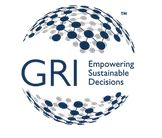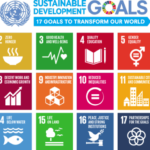
he new joint program, which includes a partnership with the Danish Institute for Human Rights, will stimulate responsible business to achieve the Sustainable Development Goals.
The Swedish government has been a pioneer in establishing policies and best practice for sustainability and responsible business conduct, both in its national policy as well as in its international development strategy. And the GRI framework has been a cornerstone of this work; for example, Sweden was the first country in the world to mandate GRI reporting for its state-owned companies. This month, the longstanding partnership between the Swedish International Development Agency (Sida) and GRI entered a new phase, with a new 2.5 million Euro grant that seeks to further strengthen the sustainability impact of the corporate sector in developing countries.
The new joint program, which includes a partnership with the Danish Institute for Human Rights, will stimulate responsible business to achieve the Sustainable Development Goals (SDGs). GRI can be a powerful agent for change as it continues its drive to grow and improve transparency, accountability and reporting among corporate actors, who are seen as crucial in realizing the SDGs by creating green growth outcomes and sustainable and inclusive development. In this new program, GRI will make reporting relevant for all stakeholders in developing countries, including NGOs, small and medium-sized enterprises, community leaders and advocacy groups. The organization will continue to update and strengthen its Sustainability Reporting Standards in SDG relevant issues like human rights and tax disclosure. Moreover, it will use its Standards, global engagement and convening power to help realize the SDGs, thereby alleviating poverty and tackling some of the world’s largest challenges.
Teresa Fogelberg, GRI Deputy Chief Executive, “We are delighted to enter into this new phase in our more than 10 years of partnership, as it will enable us to focus on three extremely relevant issues: first, making the SDGs happen, second, pushing companies beyond reporting into action and real change in poverty alleviation and equality, and third, ensuring a special focus on human rights. In this regard, we look forward to strengthening our partnership with the Danish Institute of Human Rights (DIHR) as well.”
Anders Gerdin of Sida: “Sida is convinced that reporting could form a solid base for real change. Reporting is not an end it itself, but a force of transformation. GRI is uniquely positioned, through its large global network and convening power, to play a strong normative role towards business and stakeholders. By engaging with business and stakeholders in this platform and through its Standards, GRI can provide incentives for companies to integrate their sustainability policy and performance into the broader arena of sustainable development. The companies can assess, understand and realize their normative and actual contribution to very real challenges like poverty alleviation, job creation, and tax as a basis for increased domestic resource mobilization. Higher level of public investments in human development supporting higher levels of skills and employability in the labor force, as well as investments in infrastructure, could also provide real longer-term benefits for companies. These benefits include expansion of markets and lower relative labor costs. Promoting the respect and protection of human rights is essential. Sida trusts that the partnership between GRI and the Danish Institute of Human Rights will provide a powerful mix of expertise and convening power as well as a good platform for normative dialogue.”



